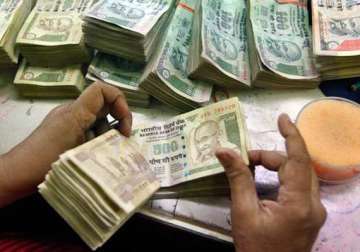New Delhi: Amid industry apprehensions, Revenue Secretary Shaktikanta Das on Saturday said the government would shortly take a view on whether controversial tax law GAAR should be implemented from the scheduled date of April, 2015.
"It should not be interpreted that General Anti-Avoidance Rules (GAAR) is going to be brought in from April 2015...It is also a fact that the new government has not looked at the whole matter. So the new government would examine the whole matter and take a decision," Das said on the sidelines of an event organised by Ficci here.
"This (review) will happen shortly. There is sufficient time. We are still eight months away from the deadline," he said.
The Government had earlier proposed imposing the General Anti-Avoidance Rules (GAAR) from April 1, 2015, for those claiming tax benefit of over Rs 3 crore. The rules are aimed at minimising tax avoidance for investments made by entities based in tax havens.
As per the existing proposal, investments made after March 2013 will be covered under GAAR with effect from assessment year 2016-17.
The issue came to light after Minister of State for Finance Nirmala Sitharaman in a written reply to the Lok Sabha yesterday, said that GAAR will be applicable from April 1, 2015.
Clarifying on the issue, Das said, "All that has been said is a factual position that as per the current law GAAR has been deferred by two years and the two-year period ends in March 2015."
Referring to concerns that a flat 20 per cent tax on debt mutual funds has been proposed with retrospective effective from April 2014, the Revenue Secretary said, "CBDT will issue necessary clarification in this matter...There is no retrospectivity at all."
Finance Minister Arun Jaitley in his Budget speech said in the case of debt oriented mutual funds, the capital gains arising on transfer of units held for more than a year is taxed at a concessional rate of 10 percent whereas direct investments in banks and other debt instruments attract a higher rate of tax.
This allows tax arbitrage opportunity, the Finance Minister said adding this arbitrage has hardly benefited retail investors as their percentage is very small among such mutual fund investors.
"With a view to remove this tax arbitrage, I propose to increase the rate of tax on long term capital gains from 10 percent to 20 percent on transfer of units of such funds. I also propose to increase the period of holding in respect of such units from 12 months to 36 months for this purpose," Jaitley had said. Das said "effective date as it stands today is financial year 2014-15 ie income accruing during the year 2014-15."
Asked what happens in case such mutual fund units have been redeemed in April or May, he said, "we will deal with this in the clarification (to be brought by CBDT)." He further said, "there is no retrospectivity at all. There is no creation of fresh (tax) liability. Whatever has been stated in Budget speech, the government and Revenue department would stand by it."
Latest Business News
